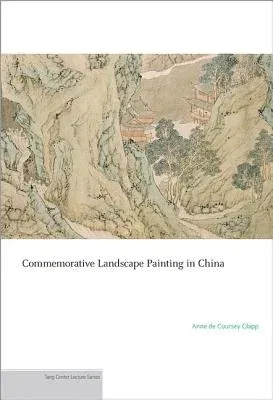Anne De Coursey Clapp
(Author)Commemorative Landscape Painting in ChinaPaperback, 29 July 2012

Qty
1
Turbo
Ships in 2 - 3 days
In Stock
Free Delivery
Cash on Delivery
15 Days
Free Returns
Secure Checkout

Part of Series
Publications of the Tang Center for East Asian Art, Princeton University
Part of Series
Publications of the Department of Art and Archaeology, Princ
Print Length
144 pages
Language
English
Publisher
Princeton University Press
Date Published
29 Jul 2012
ISBN-10
0691154767
ISBN-13
9780691154763
Description
Product Details
Author:
Book Format:
Paperback
Country of Origin:
US
Date Published:
29 July 2012
Dimensions:
25.65 x
18.03 x
1.27 cm
Genre:
Asian - General
ISBN-10:
0691154767
ISBN-13:
9780691154763
Language:
English
Location:
Princeton
Pages:
144
Publisher:
Series:
Weight:
476.27 gm